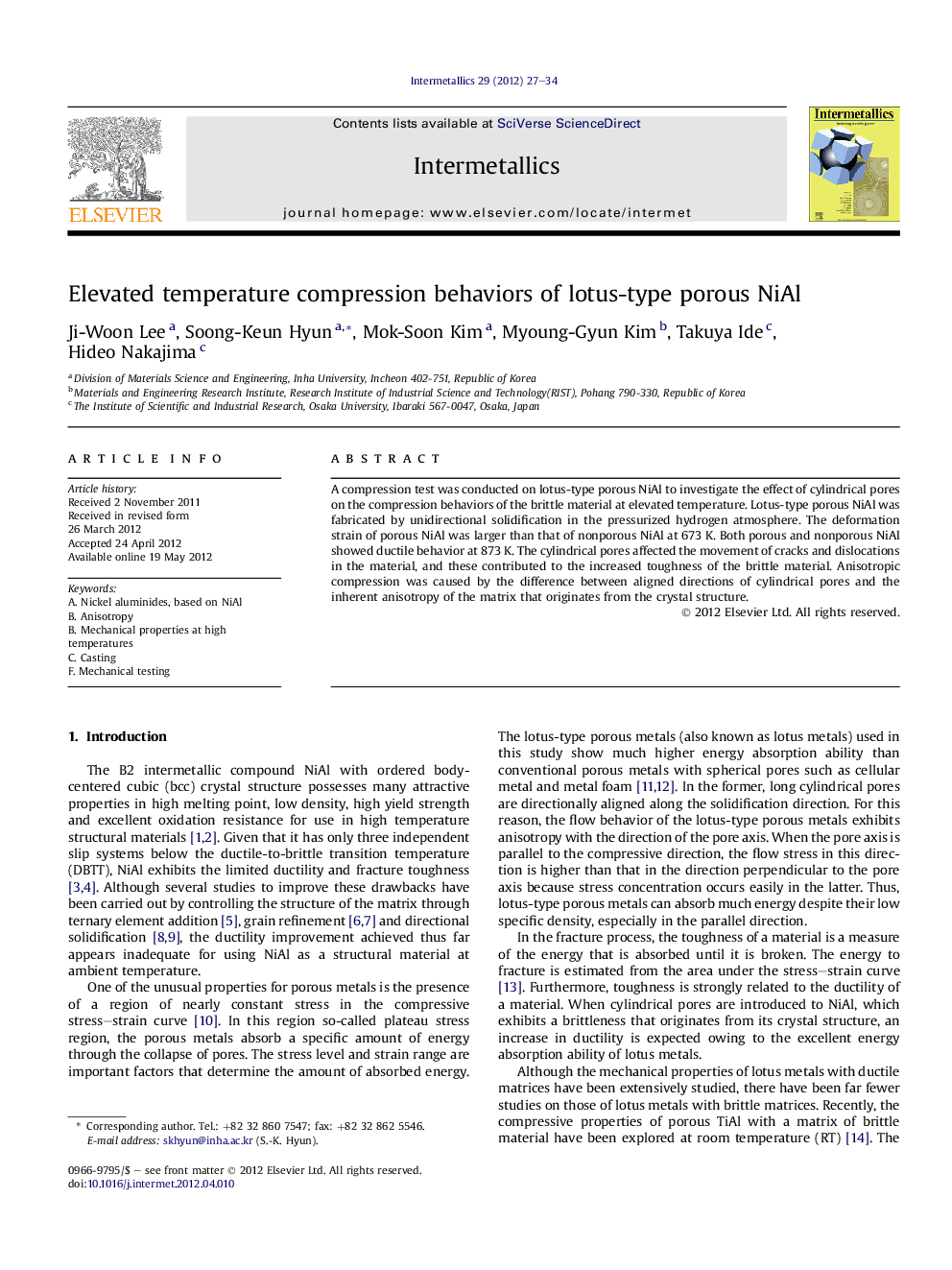| Article ID | Journal | Published Year | Pages | File Type |
|---|---|---|---|---|
| 1600427 | Intermetallics | 2012 | 8 Pages |
A compression test was conducted on lotus-type porous NiAl to investigate the effect of cylindrical pores on the compression behaviors of the brittle material at elevated temperature. Lotus-type porous NiAl was fabricated by unidirectional solidification in the pressurized hydrogen atmosphere. The deformation strain of porous NiAl was larger than that of nonporous NiAl at 673 K. Both porous and nonporous NiAl showed ductile behavior at 873 K. The cylindrical pores affected the movement of cracks and dislocations in the material, and these contributed to the increased toughness of the brittle material. Anisotropic compression was caused by the difference between aligned directions of cylindrical pores and the inherent anisotropy of the matrix that originates from the crystal structure.
► Ductility of NiAl increases by unidirectional pores at elevated temperature. ► Ductile-to-brittle transition temperature of NiAl decreases from energy absorption ability increase. ► Unidirectional pores affect crack behavior and dislocation movement on ductility improvement. ► Anisotropic properties are caused from stress concentration difference and crystal structure.
